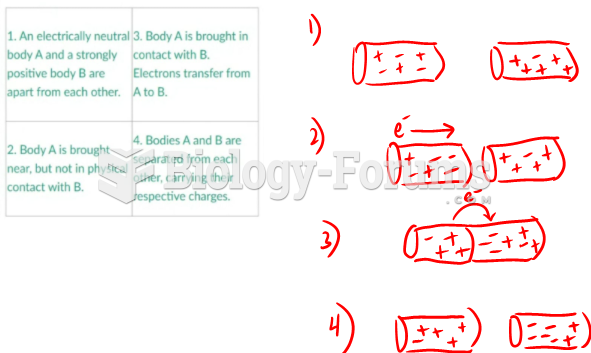Answer to Question 1
Correct Answer: 1,3,4,5
Rationale 1: During the time of exclusivity, the pharmaceutical company determines the cost of the medication. To offset research and development costs, brand-name drugs are often expensive.
Rationale 2: During the time of exclusivity, there are no generic versions of the drug, as the pharmaceutical company tries to recoup the money it took to research and develop the drug.
Rationale 3: Once the exclusive rights end, other pharmaceutical companies will be able to market the generic version at a lower cost.
Rationale 4: In some states, the physician may routinely substitute the brand-name drug for a generic drug.
Rationale 5: Other countries are not bound by U.S. drug laws, and clients may obtain brand-name drugs for a fraction of the price. However, these countries do not have the same quality control as the United States.
Global Rationale: During the time of exclusivity, the pharmaceutical company determines the cost of the medication. To offset research and development costs, brand-name drugs are often expensive. Once the exclusive rights end, other pharmaceutical companies will be able to market the generic version at a lower cost. In some states, the physician may routinely substitute the brand-name drug for a generic drug. Other countries are not bound by U.S. drug laws, and clients may obtain brand-name drugs for a fraction of the price. However, these countries do not have the same quality control as the United States. During the time of exclusivity, there are no generic versions of the drug, as the pharmaceutical company tries to recoup the money it took to research and develop the drug.
Answer to Question 2
Correct Answer: 3,5
Rationale 1: It may be true that the client's prescription is a brand name and more expensive, but this is not an appropriate explanation for the substitution.
Rationale 2: While this may be true, it does not give the client an appropriate explanation for the substitution.
Rationale 3: Some states allow the pharmacist to routinely substitute a generic drug for a brand-name drug. Other states prohibit this substitution and the pharmacist or client must request the substitution from the health care provider.
Rationale 4: The ingredients may be exactly the same, but this is not an appropriate explanation for the substitution.
Rationale 5: There may be several forms of a generic medication. Although they may look different, the ingredients and mechanism of action are the same.
Global Rationale: Some states allow the pharmacist to routinely substitute a generic drug for a brand-name drug. Other states prohibit this substitution and the pharmacist or client must request the substitution from the health care provider. There may be several forms of a generic medication. Although they may look different, the ingredients and mechanism of action are the same. It may be true that the client's prescription is a brand name and more expensive, but this is not an appropriate explanation for the substitution. While there may be no difference between the two medications, this does not give the client an appropriate explanation for the substitution. The ingredients may be exactly the same, but this is not an appropriate explanation for the substitution.







